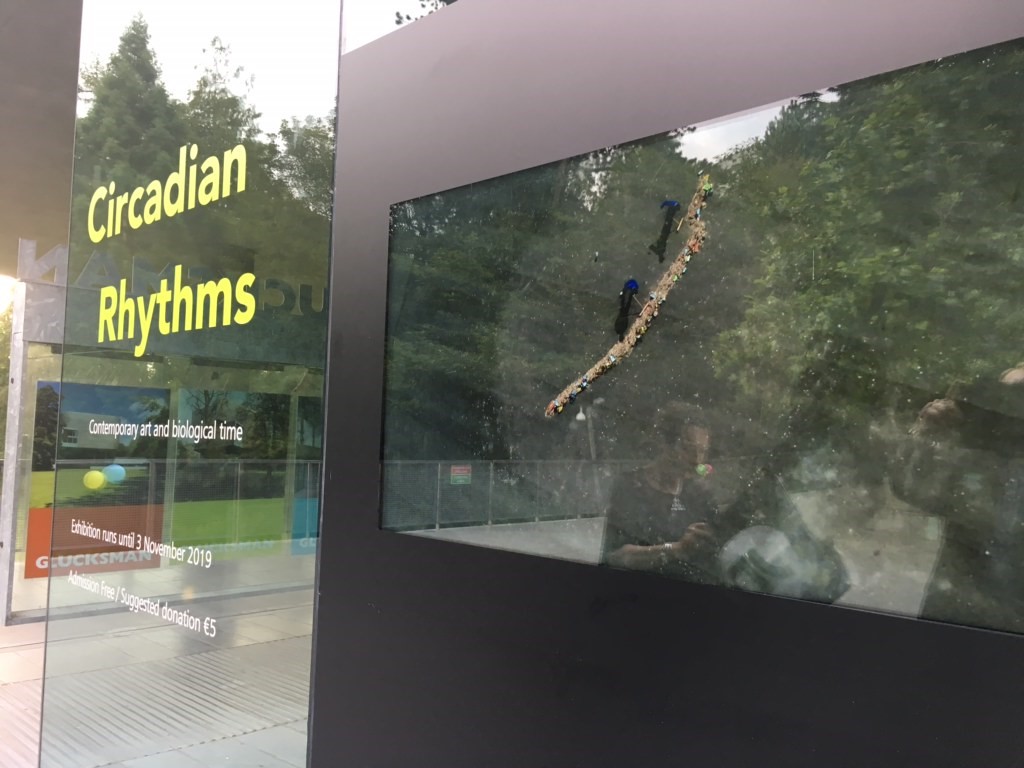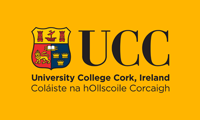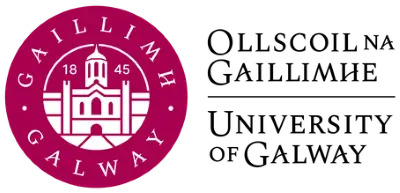News
Tick Tock Goes The Microbiome Clock

Tick Tock Goes The Microbiome Clock
APC Partners With The Glucksman For Circadian Rhythms Exhibition
All life on earth operates to a daily 24-hour cycle – through rhythmic patterns of activity that are known as Circadian Rhythms. Our circadian rhythms tell our bodies when to wake up, when to eat and when to fall asleep. APC Microbiome Ireland is delighted to partner with the Glucksman, UCC to explore this exciting area in a new exhibition Circadian Rhythms, which is now open to public.
Curated by Chris Clarke and Fiona Kearney, Circadian Rhythms explores contemporary art and biological time. It features Irish and international artists who explore Circadian Rhythms through reflections on time, the cadence of working life, sleeping patterns, as well as through the impact of modern technologies on biological life.
The exhibition also provides a fascinating insight into the world-leading research being undertaken here at the APC Microbiome Ireland SFI Research Centre. Our researchers are investigating how gut microbes can influence human circadian rhythms to impact obesity, metabolic disease and brain function.
“Our gut microbiome (the collection of bacteria that live in our gastrointestinal tract) plays an essential role in fine-tuning our circadian clock”, said Prof Paul Ross, Director, APC Microbiome Ireland SFI Research Centre. “The microbiome itself has a circadian pattern of activity and sends signals to the human host which help to keep our own circadian clock ticking in perfect time. Poor diet can disrupt the microbiome and this finely balanced circadian synchronicity and increase the risk for development of cardio-metabolic diseases.”
As part of the exhibition, there is a discovery zone, where visitors can explore the microbiome and how it regulates our Circadian Rhythm. By using the “Mind Your Microbes” App and interacting with a bespoke Circadian Rhythm Hourglass, both created by APC Microbiome Ireland, visitors will see the effect of age, diet and exercise on our microbiome and in turn, our internal body clock. Visitors can add their voice to the conversation by voting for or against continued Day-Light-Saving and whether they identify as a “Morning Lark” or “Night Owl”.
The exhibition features the Irish premiere of work by leading practitioners such as performance artist Tehching Hsieh, who for the duration of one year, deprived himself of sleep and travel, to remain in the confines of his studio, punching a time clock on the hour and documenting his appearance. Indian artist Jitish Kallat’s work delves into ideas of time, sleep, movement, vision and perception in an interplay of the everyday and the cosmological. Meditative drawings such as Rain Study (the hour of the day of the month of the season) are chance formations of rain water captured during the Monsoon season that suggest astronomical charts, while his sculptural works in the exhibition include Glyph, an imposing cast concrete mattress that metamorphoses into a motorway bridge, collapsing rest and travel into a single contradictory object. Circadian Rhythms also presents the work of renowned Dutch designer Maarten Baas. His Real Time: Sweeper’s Clock is a 12-hour film documenting two handymen sweeping refuse in two lines that function as the two hands of a manual clock. The time of the film is accurate to the time of day where it is being watched, enabling audiences to tell the minute and hour due to the continuous labour of the workers, evocative of the continuous labour of shift workers in modern society. We now know that altered sleep cycles in shift workers are potentially disruptive of the circadian clock and may influence the likelihood of developing conditions associated with poor health. Indeed, deregulation of the circadian clock associated with poorly regulated sleep has become a feature of modern life, and the biological effects are being studied at APC Microbiome Ireland.
Glucksman Director, Fiona Kearney, said, “we are delighted to showcase the ideas and world-class research of our colleagues in APC Microbiome Ireland through the imaginative work of contemporary Irish and international artists. Art and science are linked through creativity, observation and experimentation and this exhibition will give people an opportunity to reflect on how daily and seasonal changes impact the everyday rhythms of our lives.”
Circadian Rhythms is supported by APC Microbiome Ireland SFI Research Centre, University College Cork, The Arts Council Ireland, and private philanthropy through Cork University Foundation.



